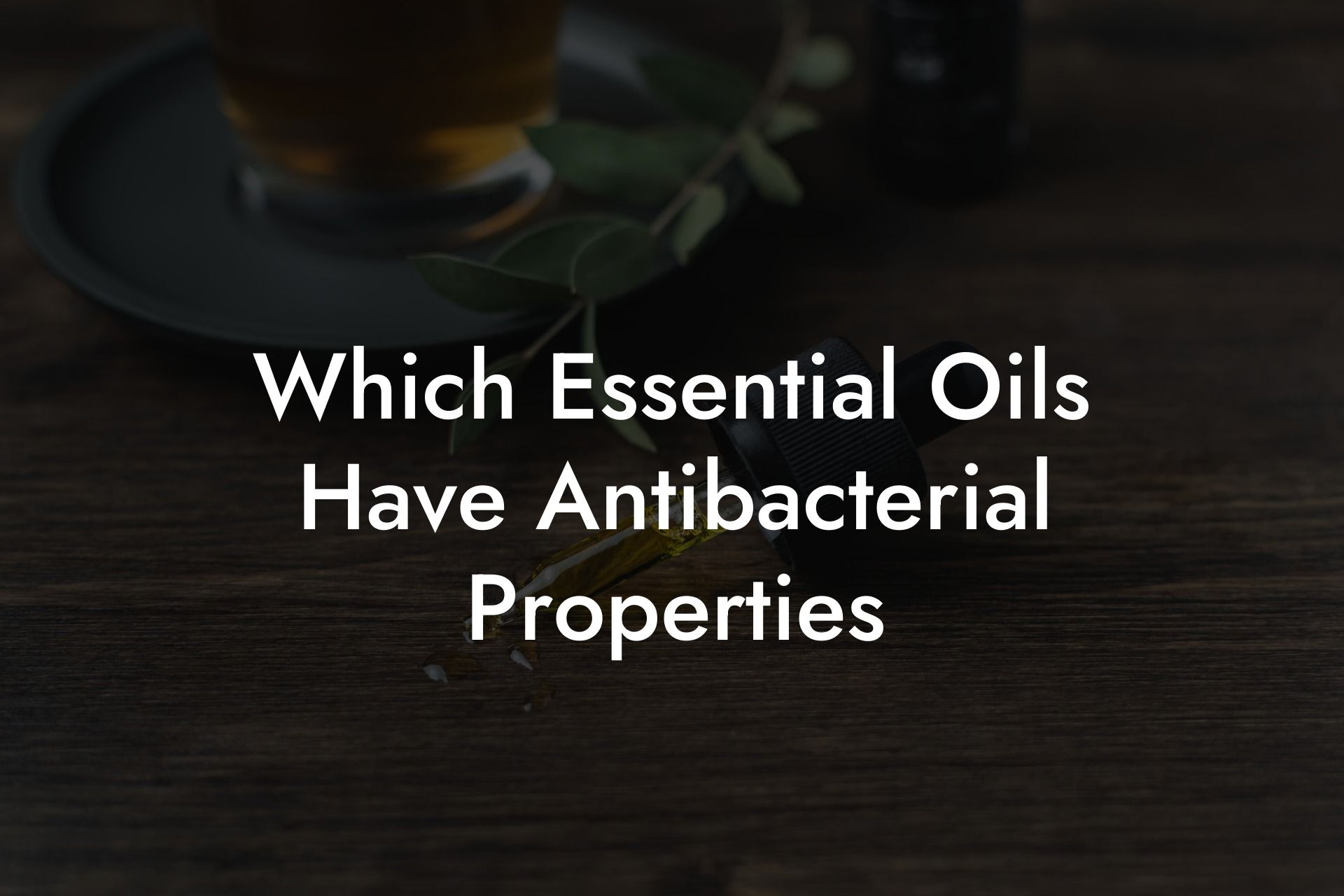In the world of natural remedies, essential oils have taken center stage. People are increasingly turning to these potent, plant-based solutions for a variety of health and wellness concerns. One such area where essential oils have proven to be particularly effective is in combatting harmful bacteria. In this article, we will uncover the top essential oils with antibacterial properties to help you make informed choices in incorporating these natural warriors into your daily routines.
Table of Contents
The Power of Essential Oils in Fighting Bacteria
Essential oils are powerful, concentrated extracts from various plants, flowers, and fruits, each possessing unique properties and potential health benefits. Among these, some are known for their remarkable antibacterial traits that can aid in killing or inhibiting the growth of harmful bacteria types.
Top Antibacterial Essential Oils
To help you make the most out of these useful essential oils, we have compiled a list of the top performers in fighting bacteria.
1. Tea Tree Oil
Widely known and cherished for its antimicrobial properties, tea tree oil has long been used as a natural remedy for skin infections, acne, and even respiratory issues, owing to its antibacterial, antiviral, and antifungal properties.
2. Eucalyptus Oil
A staple in many homes for cold and flu remedies, eucalyptus oil is a potent antibacterial oil that can help clear congestion and soothe respiratory problems. It is also effective when used as a natural surface cleaner, deodorizer, and even as an insect repellent.
3. Lavender Oil
The sweet-smelling lavender oil not only boasts calming properties but is also effective against certain strains of bacteria, including Staphylococcus aureus (a common source of skin infections) and Escherichia coli (a common cause of foodborne illness).
4. Peppermint Oil
Known for its refreshing and invigorating scent, peppermint oil is another excellent antibacterial essential oil. It has shown the ability to fight off common bacterial strains like Staphylococcus aureus, E. coli, and Listeria, making it a powerful ally in your antibacterial arsenal.
5. Oregano Oil
Oregano oil is a potent antibacterial and antiviral essential oil, particularly effective against various strains of foodborne bacteria and even antibiotic-resistant bacteria like MRSA.
6. Thyme Oil
A powerful antibacterial agent, thyme oil is effective against a wide variety of bacteria like Staphylococcus aureus and even antibiotic-resistant strains, making it a useful natural solution against certain infections.
7. Cinnamon Oil
Cinnamon essential oil, derived from both the bark and the leaves of the cinnamon tree, boasts potent antibacterial qualities. It is particularly effective against respiratory illnesses caused by bacterial infections.
Using Antibacterial Essential Oils Safely
While these essential oils are natural and offer numerous health benefits, they must be used with care as they are highly concentrated and may cause irritation or toxicity if not properly diluted and stored. Some general safety tips include:
- Always dilute essential oils with a carrier oil or water before topical application or diffusing in your home.
- Perform a patch test before using any essential oil topically to ensure you do not have any adverse reactions or allergies.
- Keep essential oils out of reach of children and pets.
- Consult with a healthcare professional, especially for pregnant or breastfeeding women and those with pre-existing health conditions, before incorporating essential oils into your routine.
Which Essential Oils Have Antibacterial Properties Example:
Imagine you’ve come down with a sore throat and a congested chest. Instead of reaching for over-the-counter remedies that may contain chemicals, you decide to opt for a natural solution. You create a soothing, antibacterial blend by adding a few drops of eucalyptus oil, lavender oil, and peppermint oil to a bowl of steaming water. As you inhale the therapeutic steam, you feel the combined power of these essential oils working to clear the congestion and fight off the bacteria causing your discomfort.
We hope this guide has provided valuable insights into the top essential oils with antibacterial properties and how they may support your health and wellbeing. As you continue on your journey towards natural solutions, we invite you to explore the wide range of essential oils and informative resources available at Oshu Oils. Don’t forget to share this article with others who may benefit from incorporating these powerful oils into their daily routines. Together, we can harness the power of essential oils to live our healthiest, most balanced lives.





















